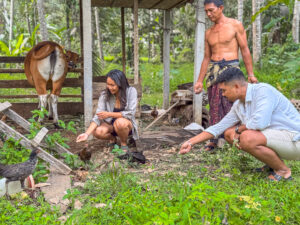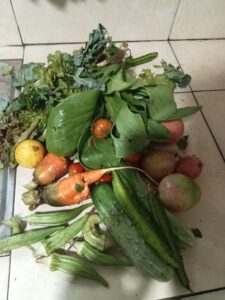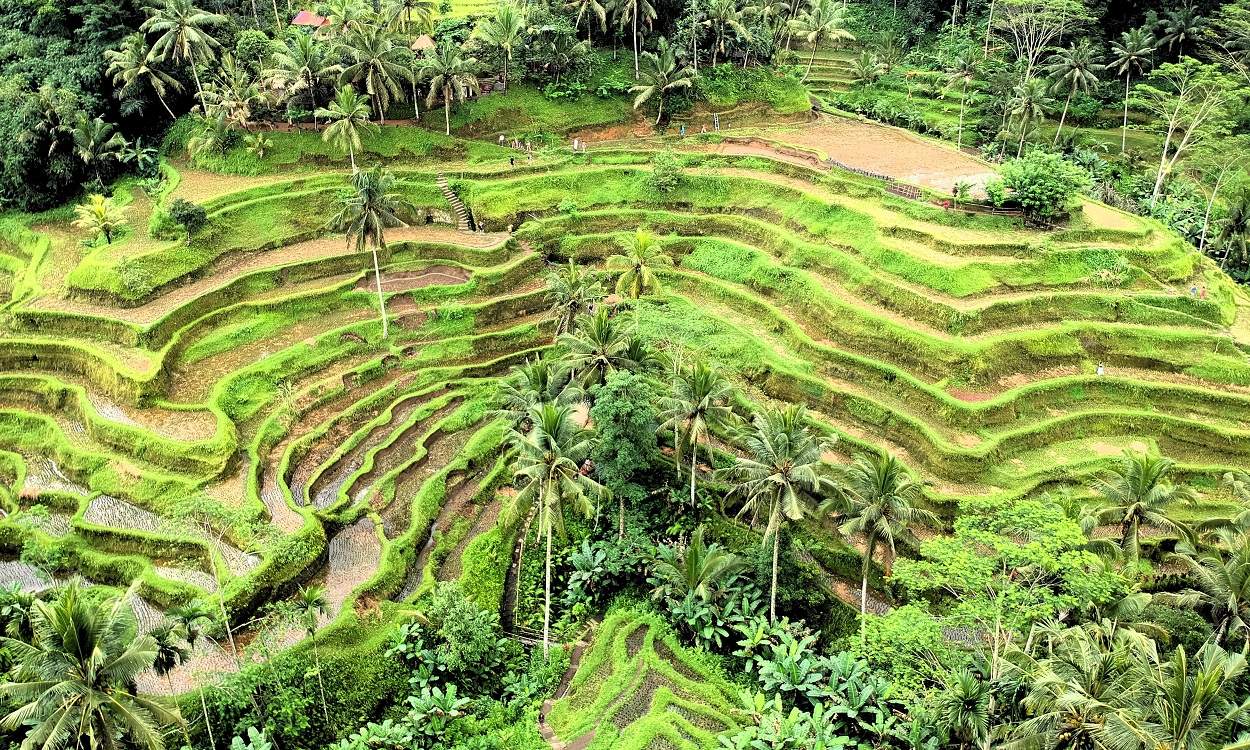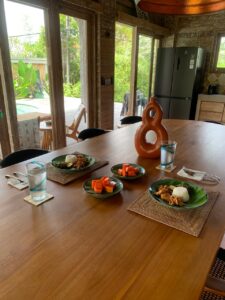There’s something undeniably enchanting about Ubud, Bali. It’s a place where spirituality meets sustainability, where tradition embraces innovation, and where slow living isn’t merely a trend—it’s a way of life. From the emerald-green Tegallalang Rice Paddies that cascade down the hillsides to the vibrant stalls of the organic farmers market, Ubud is a paradise for those seeking an authentic and eco-conscious travel experience.
Yet, beyond its serene temples and yoga retreats, a quiet revolution is taking place—one that honours the land and fosters harmony between people and nature. At its core lies permaculture Bali, a philosophy that advocates for sustainable living, ecological balance, and regenerative farming practices. In recent years, this movement has gained momentum, drawing eco-travellers, farmers, and sustainability enthusiasts from around the world. Now, let’s dive deeper into Ubud’s thriving permaculture scene and explore how travellers can actively participate in this green revolution.
The Beauty of Ubud’s Sustainable Farming
Bali is known for its lush landscapes, but few places exemplify sustainable agriculture quite like Ubud. The region’s dedication to environmentally friendly farming is evident, particularly in the famous Tegallalang Rice Paddies, where age-old techniques ensure the land remains fertile for generations. Strolling through these terraced fields, it’s easy to marvel at how local farmers cultivate rice with patience and precision, preserving traditions while embracing modern sustainability practices.
Beyond rice cultivation, permaculture Bali takes farming to another level, transforming conventional agriculture into a holistic approach that mimics nature’s ecosystems. Unlike large-scale industrial farms, permaculture gardens in Ubud thrive on biodiversity, soil health, and water conservation. You can witness these principles in action at local permaculture farms, where organic fruits, vegetables, and herbs coexist in a rich, symbiotic environment.

The Role of Permaculture in Ubud’s Eco-Conscious Community
Ubud isn’t just home to picturesque landscapes—it’s also a hub for sustainability advocates who are reshaping the way we interact with the land. Whether through dedicated workshops, farm visits, or engaging in hands-on experiences, travellers can immerse themselves in the world of permaculture and gain a deeper appreciation for ethical farming.
For those keen to learn, Bali cultural tours often include stops at local permaculture farms, where visitors can explore food forests, witness natural composting techniques, and understand the delicate balance between flora and fauna. These tours highlight not only the ecological benefits of permaculture but also the cultural significance behind Bali’s agricultural traditions.
A Feast for the Senses: Farm-to-Table Dining

It’s no surprise that Ubud is home to some of Bali’s best organic dining experiences. Restaurants here take pride in sourcing ingredients locally, with many partnering directly with permaculture farms to ensure a farm-to-table approach. Dining in Ubud isn’t just about flavour—it’s about understanding where food comes from and appreciating the journey from soil to plate.
If you’re eager to get involved, attending a Bali cooking class is a fantastic way to deepen your connection to Balinese cuisine while supporting sustainable food practices. These cooking experiences often begin with a visit to the organic farmers market, where participants hand-pick fresh produce before learning the art of crafting traditional Balinese dishes. Beyond acquiring culinary skills, these classes instil a profound respect for nature and the ingredients it provides.
Markets and Ethical Shopping in Ubud
Speaking of fresh produce, the organic farmers market is a must-visit for anyone seeking ethical, locally sourced goods. Held regularly in Ubud, this market is a vibrant gathering of farmers, artisans, and sustainability enthusiasts who share a common goal—supporting eco-friendly agriculture and conscious consumerism.
Here, you’ll find everything from freshly picked fruits and vegetables to handcrafted soaps, organic teas, and sustainable textiles. It’s a place where travellers can connect with local growers, learn about organic farming techniques, and even pick up eco-conscious souvenirs to take home.
Embracing Slow Living in Ubud
Beyond its commitment to sustainability, Ubud embodies the spirit of slow living, encouraging people to embrace a more mindful, intentional approach to life. The fast-paced demands of modern travel often push tourists to cram as many activities into their itinerary as possible. But here, the philosophy is different—less rushing, more appreciating, and a deeper connection to nature.
Whether it’s unwinding in a jungle retreat, participating in a guided meditation session, or simply wandering through the verdant rice terraces, Ubud inspires travellers to slow down and savour each moment. It’s not just about seeing the sights; it’s about immersing oneself in the rhythms of nature and embracing a lifestyle that prioritises sustainability and well-being.
 The Future of Sustainable Tourism in Ubud
The Future of Sustainable Tourism in Ubud
As more travellers seek meaningful, eco-conscious experiences, Ubud continues to lead the charge in sustainable tourism. Its dedication to permaculture Bali, organic farming, and ethical consumerism sets a precedent for responsible travel, proving that tourism doesn’t have to come at the expense of the environment.
Ultimately, Ubud’s charm lies in its ability to seamlessly blend tradition with sustainability, luxury with responsibility, and nature with nurture. Whether you’re exploring the Tegallalang Rice Paddies, attending a Bali cooking class, or wandering through the bustling stalls of the organic farmers market, each experience reinforces the importance of mindful, ethical travel.
As the world grapples with environmental challenges, destinations like Ubud offer a refreshing perspective—one where sustainability isn’t just a concept, but a way of life.

 The Future of Sustainable Tourism in Ubud
The Future of Sustainable Tourism in Ubud